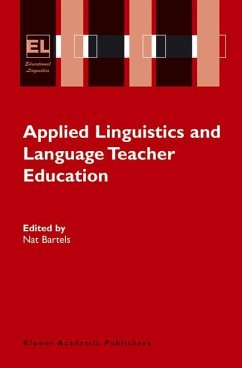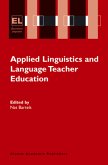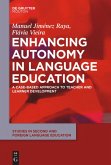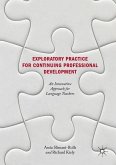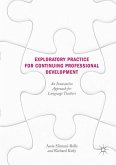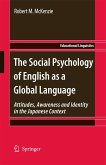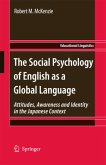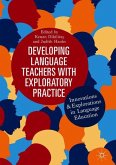Applied Linguistics and Language Teacher Education is aimed at applied linguists who are interested in understanding more about the learning of novice teachers in their classes. The 21 studies in this volume provide information on the complexity of novice teachers learning and use of knowledge in a variety of applied linguistics classes such as SLA, Syntax, Pragmatics, Sociolinguistics, Phonetics and Phonology, L2 Reading and Writing, Testing, and Content Based Instruction. These studies were conducted in a variety of contexts, from North and South America to Europe, Asia and Australia, and look at the preparation of teachers of English, Spanish and Chinese.
The book also includes a state-of-the-art summary of research on knowledge acquisition and use which provides applied linguists with a solid basis for developing their ideas about their students learning and use of the knowledge presented in their classes.
Hinweis: Dieser Artikel kann nur an eine deutsche Lieferadresse ausgeliefert werden.
The book also includes a state-of-the-art summary of research on knowledge acquisition and use which provides applied linguists with a solid basis for developing their ideas about their students learning and use of the knowledge presented in their classes.
Hinweis: Dieser Artikel kann nur an eine deutsche Lieferadresse ausgeliefert werden.
"They provide teachers of applied linguistics with current knowledge on the relationship between applied linguistics and language teacher education ... . The volume can be useful to different audiences. ... The chapters in this volume would provide an excellent point of departure for introductory courses in research in foreign language education and applied linguistics. ... In short, this volume successfully begins a dialogue among the many professionals contributing to the training of language teachers." -- Diane W. Birckbichler, Modern Language Journal, Vol. 91 (1), 2007
From the reviews:
"They provide teachers of applied linguistics with current knowledge on the relationship between applied linguistics and language teacher education ... . The volume can be useful to different audiences. ... The chapters in this volume would provide an excellent point of departure for introductory courses in research in foreign language education and applied linguistics. ... In short, this volume successfully begins a dialogue among the many professionals contributing to the training of language teachers." (Diane W. Birckbichler, Modern Language Journal, Vol. 91 (1), 2007)
"They provide teachers of applied linguistics with current knowledge on the relationship between applied linguistics and language teacher education ... . The volume can be useful to different audiences. ... The chapters in this volume would provide an excellent point of departure for introductory courses in research in foreign language education and applied linguistics. ... In short, this volume successfully begins a dialogue among the many professionals contributing to the training of language teachers." (Diane W. Birckbichler, Modern Language Journal, Vol. 91 (1), 2007)

